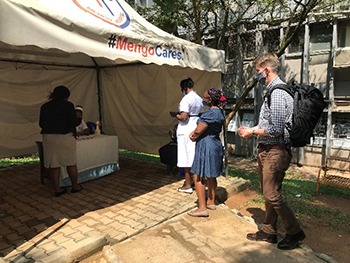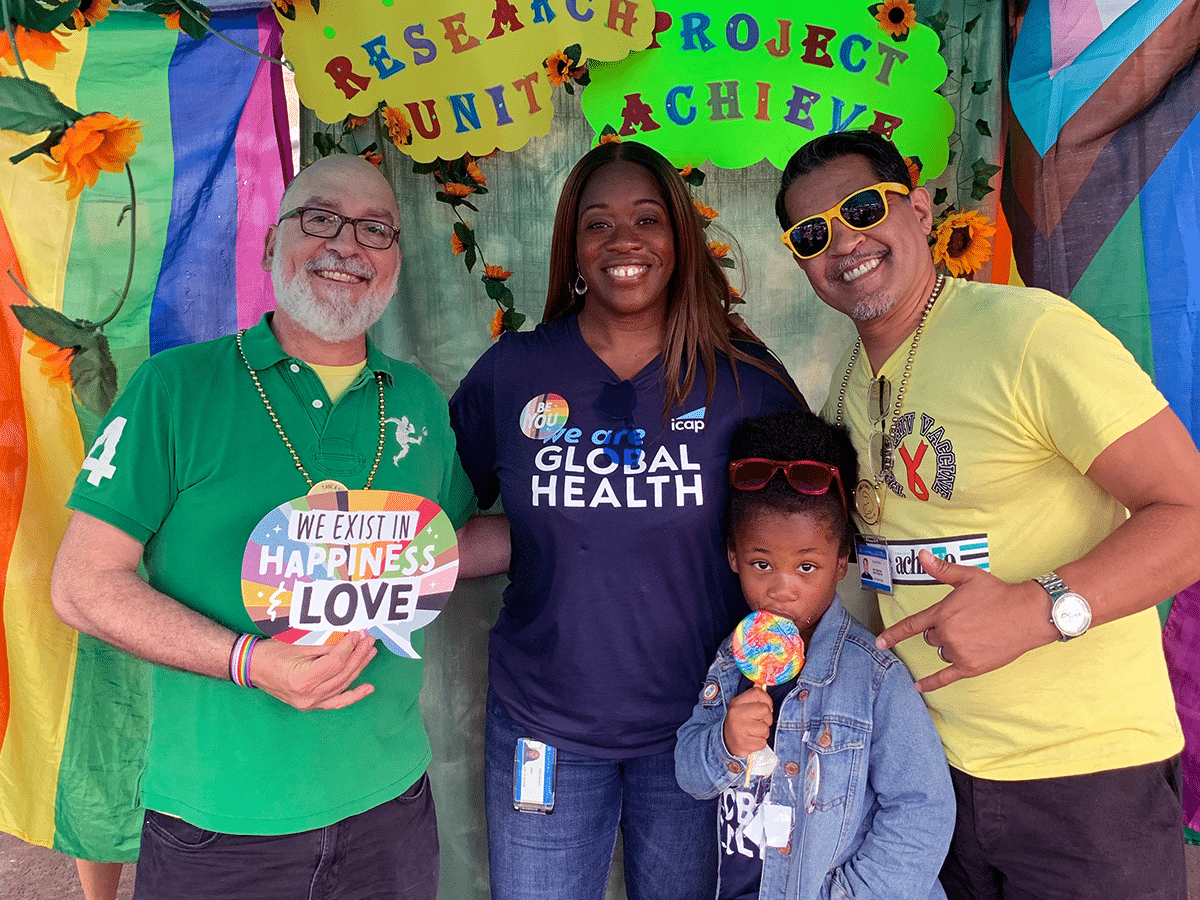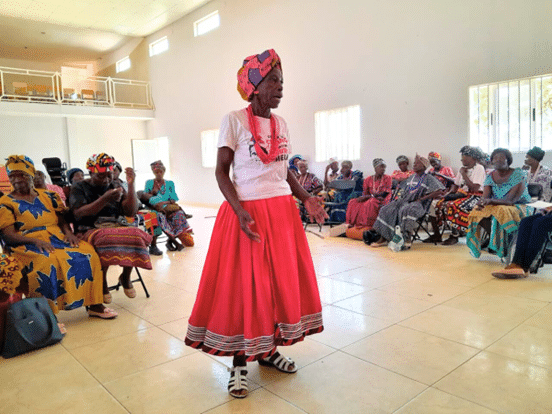An initiative to build infection, prevention, and control capacity in East Africa, ICAP’s East Africa Infection Prevention and Control learning network (EAIPC) has, since September 2020, paved the way for enhancing and expanding IPC standards in Ethiopia, Kenya, Uganda, and Tanzania.
Since the rapid spread of COVID-19 across the globe in early 2020, the four East African countries – where ICAP has a well-established work presence – identified several challenges and gaps in IPC standards when trying to curb the spread of the coronavirus pandemic in their countries.
With funding from the U.S. Centers for Disease Control’s (CDC) Emergency International Task Force (ITF) Fund, the ICAP-launched learning network has built IPC capacity in the East African countries over the past year through several programs and strategies in response to COVID-19, as well as other infections and diseases.
“The network became the best opportunity for the IPC community to exchange best practices and experiences within and between the four countries and to build capacity to design and implement QI projects for testing and scaling-up of prioritized interventions to achieve and sustain standards of IPC compliance,’’ said Getachew Kassa, MSc, MPH, DrBA, senior quality improvement (QI) advisor for ICAP. “The East Africa IPC learning network established a regional IPC community of practice that enhances the competencies of hospital-based IPC focal points to support compliance with IPC standards and best practices,’’ Kassa said.
Under the project, ICAP has conducted 29 weekly case-based learning sessions for IPC focal persons from 22 health care facilities from the four countries, exploring topics such as The Identification and Management of Health Care Workers and Patients with COVID-19, Waste Management, and Implementation of Transmission-based Precautions.
The learning sessions also included a seven-week Quality and Quality Improvement training course where 64 participants received a certificate of completion. Since the training, all facilities have initiated QI-for-IPC projects on topics including health care worker and patient screening for COVID-19, hand hygiene, and health care-associated infection surveillance.
The EAIPC Network also completed baseline IPC assessments for COVID-19 at all participating facilities, where performance monitoring is ongoing. The assessments identify areas for improvement and inform in-person supportive supervision from local IPC mentors.
In addition, four webinars hosted by each country on IPC-related topics highlighted country practices and challenges.
“The EA IPC network has successfully established itself as a Community of Practice for IPC in the region. As a result, a culture of excellence in IPC has started to build up through the region,” said Andy Bulabula, MD, PhD, MScClinEpi regional IPC advisor for the EAIPC network. “In many ways, the EA IPC network has achieved impactful changes, from increasing awareness of what IPC best practices are to applying Quality Improvement principles in IPC,” said Bulabula.
As of October 2021, there have been approximately 738,367 confirmed cases of COVID-19 among the four East African countries. The EA IPC Network will continue to build IPC capacity through learning network activities and case-based learning sessions. In addition, the network will convene in-person workshops, meetings, and learning visits within and between countries, when feasible.
Learn more about ICAP’s work in infection, prevention, and control here.
About ICAP
A major global health organization that has been improving public health in countries around the world for nearly two decades, ICAP works to transform the health of populations through innovation, science, and global collaboration. Based at Columbia Mailman School of Public Health, ICAP has projects in more than 30 countries, working side-by-side with ministries of health and local governmental, non-governmental, academic, and community partners to confront some of the world’s greatest health challenges. Through evidence-informed programs, meaningful research, tailored technical assistance, effective training and education programs, and rigorous surveillance to measure and evaluate the impact of public health interventions, ICAP aims to realize a global vision of healthy people, empowered communities, and thriving societies. Online at icap.columbia.edu








